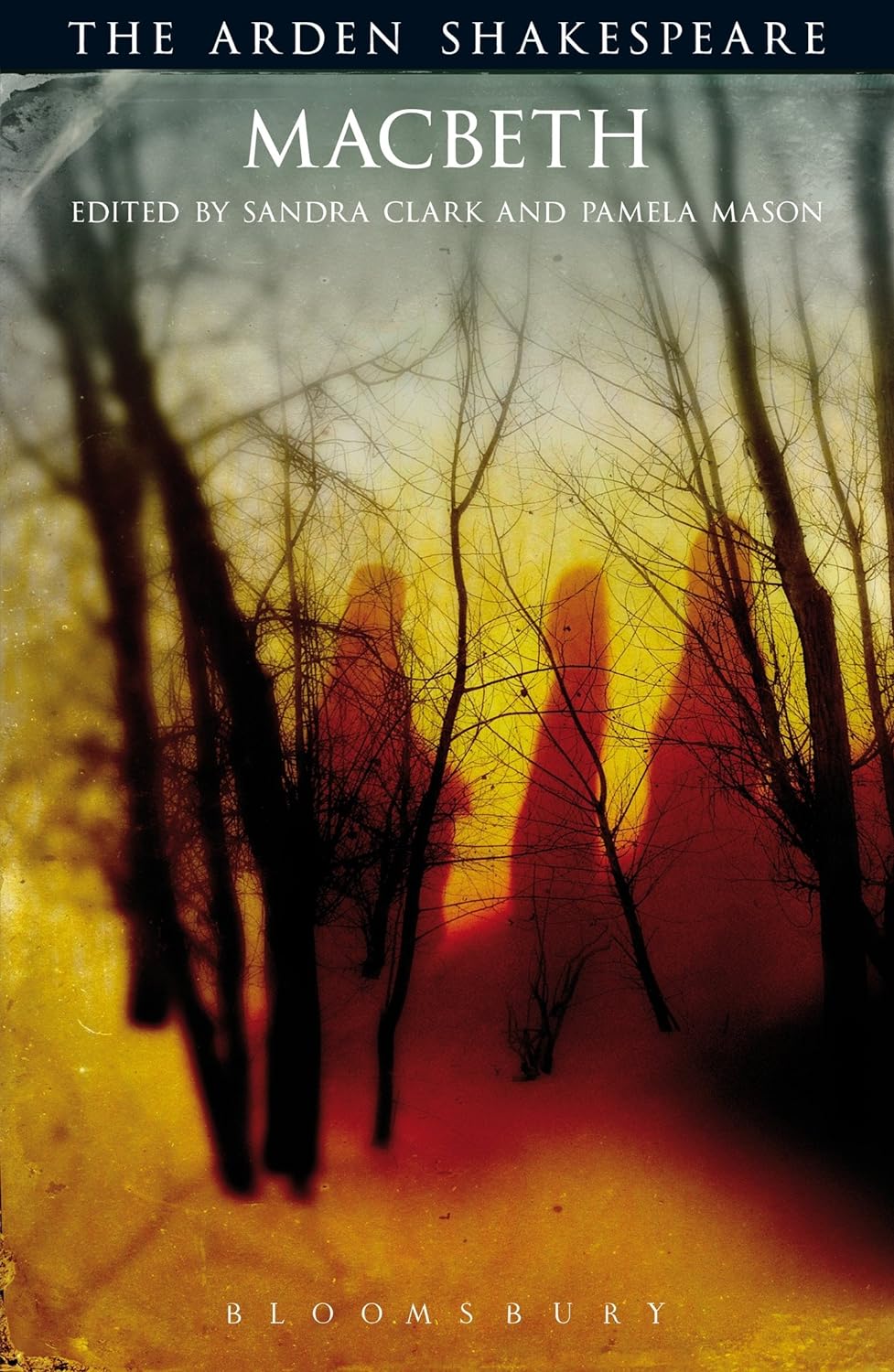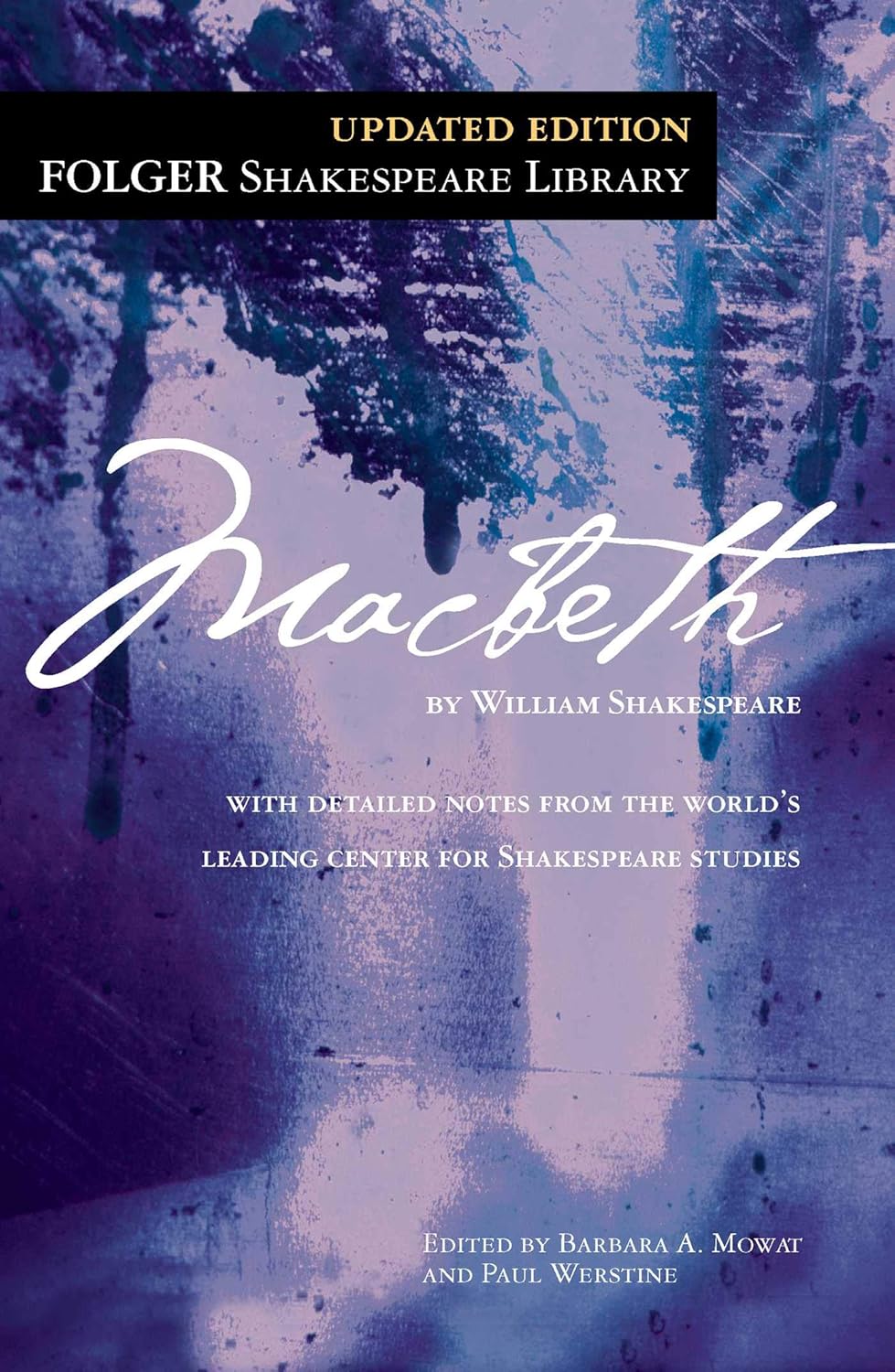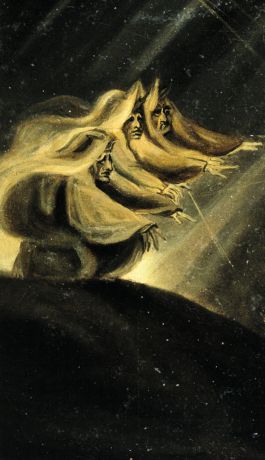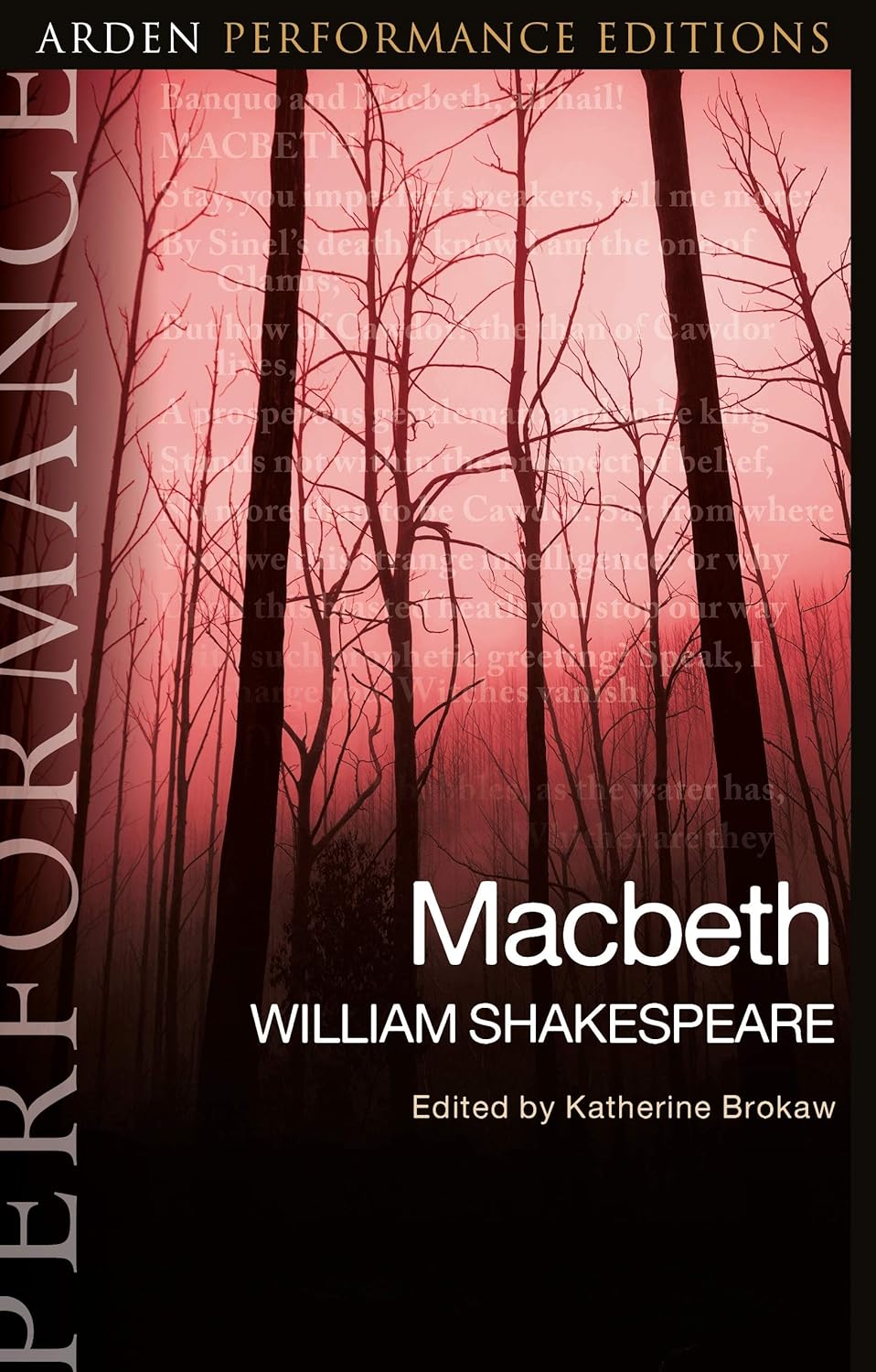Shakespeare’s Dark Dance with Destiny
The dagger hangs in the air, its spectral blade pointing toward murder. A man stands transfixed, his ambition warring with his conscience. This iconic moment from Shakespeare’s shortest tragedy has captivated audiences for over four centuries, as “Macbeth” continues to explore the darkest corners of human nature. From its supernatural elements to its psychological depth, this “Scottish play” remains one of theater’s most compelling examinations of power, guilt, and destiny.
Quick Facts
- First performed: 1606 at Hampton Court Palace
- Length: Five acts, approximately 2.5 hours
- Setting: Medieval Scotland
- Notable adaptations: Orson Welles’s “Voodoo Macbeth” (1936), Akira Kurosawa’s “Throne of Blood” (1957), Joel Coen’s “The Tragedy of Macbeth” (2021)
- Famous performers: Ian McKellen, Patrick Stewart, Kenneth Branagh, Judi Dench, Marion Cotillard
Just want to read the play?

Arden Shakespeare Edition
Edited by Sandra Clark and Pamela Mason, contains critical scholarly material on the plays history in performance.
Arden Performance Edition
Desiged for drama classes, with facing-page notes, definitions of words, notes on pronunciation and more.

Folger Shakespeare Library Edition
Text based on the best early printed version of the play with revised explanatory notes and more.
Free version? Try the Folger Library online version: https://www.folger.edu/explore/shakespeares-works/macbeth/read/
Historical Context
Written during the early reign of James I, “Macbeth” was Shakespeare’s Scottish play for his Scottish king. James had recently ascended to the English throne, bringing with him a fascination with witchcraft (he even wrote a book on the subject, “Daemonologie”). The play’s themes of legitimate succession and divine right would have resonated deeply in a period when the Gunpowder Plot had recently threatened the monarchy.
Shakespeare drew from Holinshed’s Chronicles for his story but transformed a historical account into a psychological thriller. The real Macbeth ruled Scotland for 17 years (1040-1057) in what historians consider a relatively stable reign. Shakespeare’s dramatic liberties created something far more potent: a study of ambition, guilt, and supernatural temptation.
Plot Overview
General Macbeth encounters three witches who prophesy his rise to the Scottish throne. Spurred by their prediction and his wife’s ambition, he murders King Duncan, his guest and sovereign. This act begins a spiral of violence: Macbeth orders the murder of his friend Banquo and Banquo’s son Fleance (who escapes), then the family of his rival Macduff.
Lady Macbeth, initially the stronger and more ruthless of the pair, descends into guilt-ridden madness. Meanwhile, Macbeth becomes increasingly tyrannical and paranoid. The prophecies that seemed to guarantee his safety prove deceptive. Macduff, who “was from his mother’s womb untimely ripped” (fulfilling the prophecy that “none of woman born” could harm Macbeth), finally kills him. Malcolm, Duncan’s son, becomes king, restoring legitimate rule to Scotland.
Themes & Analysis
The Corrupting Nature of Power
The play’s central theme is how power corrupts and absolute power corrupts absolutely. We watch Macbeth transform from a respected general into a “butcher” king. His initial hesitation about murder gives way to an almost mechanical efficiency in ordering deaths. Shakespeare shows this corruption through Macbeth’s language, which shifts from poetic uncertainty (“If it were done when ’tis done…”) to brutal directness (“The castle of Macduff I will surprise”).
Gender and Power
Lady Macbeth’s famous “unsex me here” speech reveals complex views of gender and power. She sees feminine qualities as weaknesses to be purged, yet her eventual madness suggests the futility of denying one’s nature. The witches, with their beards and ambiguous appearance, further blur gender lines, suggesting a world where traditional categories break down in the face of supernatural forces.
Fate vs. Free Will
The prophecies create a fascinating paradox: do they compel Macbeth’s actions, or merely suggest possibilities he chooses to pursue? The play never fully resolves this question, making it eerily relevant to modern debates about predestination and free will.
Revolutionary Elements
Shakespeare’s innovation lies in his psychological realism. The soliloquies offer unprecedented access to a murderer’s mind, showing the tortuous reasoning that leads to and from violence. The supernatural elements serve psychological functions: Banquo’s ghost and the floating dagger externalize Macbeth’s guilt and fear.
Cultural Impact
“Macbeth” has influenced countless works, from Akira Kurosawa’s “Throne of Blood” to Netflix’s “House of Cards.” Its exploration of political ambition resonates in every era. The play’s famous theatrical superstitions (never say “Macbeth” in a theater) add to its mystique.
Staging & Performance
The play presents unique challenges: supernatural elements must be convincing, violence must be meaningful rather than gratuitous, and the psychological deterioration of both Macbeths must be carefully tracked. Modern productions have set it everywhere from corporate boardrooms to post-apocalyptic wastelands, proving its adaptability.
Reading Guide
Best Editions
- Arden Shakespeare Third Series (Sandra Clark and Pamela Mason): Best scholarly edition
- Folger Shakespeare Library: Excellent for first-time readers
- Norton Critical Edition: Strong on historical context
Reading Tips
- Track the imagery of blood, sleep, and darkness
- Note how the language changes as characters change
- Pay attention to the role of children and succession
- Consider how the supernatural elements function symbolically
Contemporary Relevance
In an era of political upheaval and moral uncertainty, “Macbeth” speaks directly to our concerns about power, conscience, and justice. Its questions remain urgent: How do good people become evil? What role does conscience play in politics? Can ambition be moral?
Fun Facts
- The play contains Shakespeare’s only stage direction for a ghost
- It’s considered unlucky to say “Macbeth” in a theater (say “The Scottish Play” instead)
- The role of Lady Macbeth was initially played by a boy actor
- King James I was reportedly so pleased with the play that he wrote Shakespeare a thank-you letter
Why This Play Endures
“Macbeth” endures because it combines psychological insight with supernatural terror, political commentary with poetic beauty. Its compact power makes it Shakespeare’s most performed tragedy. The play’s exploration of conscience, ambition, and guilt speaks to each new generation, while its theatrical magic continues to enthral audiences worldwide.
Additional Resources
- Roman Polanski’s 1971 film version
- “Shakespeare’s Macbeth” (Cliffs Notes)
- “Making Make-Believe Real” by Garry Wills
- “Shakespeare After All” by Marjorie Garber
The next time someone tells you “Macbeth” is just about ambition gone wrong, remember: it’s also about marriage, politics, supernatural temptation, and the human capacity for self-deception. Like the witches’ prophecies, it reveals new truths with each reading.



